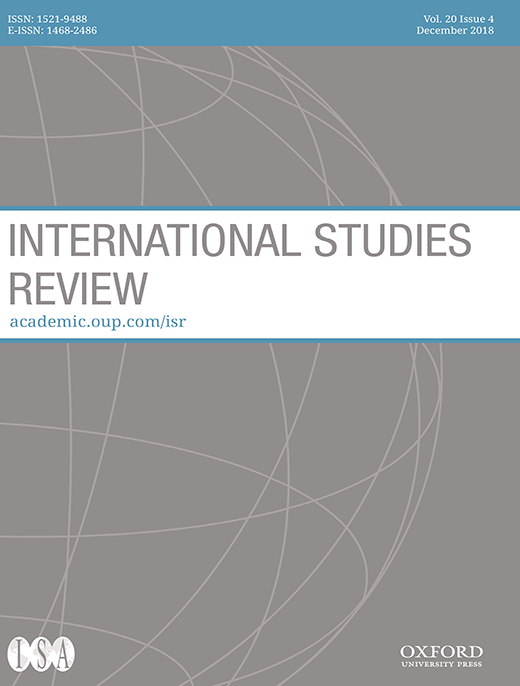Commercial Whaling to Become Legal Again
After decades of whaling under an exemption for scientific research, Japan withdrew from the International Whaling Committee concluding month, formally resuming commercial whaling. What effects will this have on the commission, and the international ban on commercial whaling in general? While the ban has been weakened over the past decades, the contempo withdrawal does not necessarily sound the expiry knell. Rather, it could besides hateful the finish of decades of deadlock in the commission. More broadly, the Japanese exit raises questions of dealing with international challenges through inclusive institutions and commissions – Should inclusivity exist pursued at whatsoever cost, or can it be productive to keep on different tracks?
Terminal December, the Japanese regime decided to withdraw from the International Whaling Committee (IWC). The decision followed a commission meeting in Florianopolis, Brazil, where Japan was again not successful in gaining the necessary three-quarters majority to restart limited commercial whaling worldwide. Nihon'south withdrawal is linked to the failed 2007–2010 "Time to come of the IWC" negotiation process between pro- and anti-whaling states. Compromise was not found and the IWC has been deadlocked on the upshot for over 20 years.
But what is this standoff actually about? And what effects volition information technology take on (one) the IWC, and (2) the ban on commercial whaling in general? The ban has already been significantly weakened over the past twenty years. Indeed, Japan's decision to withdraw does not necessarily imply an increase in whaling activities. So far, a cascade of other states starting whaling activities has not occurred. Although the effects on the IWC equally an institution are less certain, we are probable to run across a shift towards a more conservationist organization.
The IWC: From a whalers' lodge to a ban on commercial whaling
The International Whaling Commission was established in 1946 as an institution to deal with the management of global whale stocks, which was not a politicized activity at the time. Shortly thereafter, over-fishing and blatant influence of the whaling manufacture on the commission infamously lead to a rapid pass up of many whale species in the mid-20th century.
This reject sparked transnational environmental and animal rights movements from the 1970s and 1980s onwards. Whales were a central campaign focus, as these animals are peculiarly fascinating to humans due to their mere size as well equally characteristics such as emotional intelligence and longevity. Alongside other charismatic megafauna such as elephants, whales made for an ideal campaigning detail. The economical profitability of whaling had already markedly decreased due to the decline in stocks and the development of alternative products for whale blubber. In sum, many Western governments, including the USA, Corking U.k., New Zealand, and Australia, were easily persuaded to end their commercial whaling activities.
Over the years, animate being rights NGOs campaigned for the access of many countries to the IWC which had never been involved in whaling. By 1982, the anti-whaling coalition had gained the three-quarters majority necessary to modify IWC whaling quotas. They passed a – nominally temporary – moratorium on commercial whaling which came into strength in 1986 and has been in place e'er since. Withal two forms of whaling remained legal with this decision: First, the IWC passes whaling quotas for aboriginal subsistence whaling, used in Alaska, Greenland, the Caribbean, and elsewhere. Second, lethal enquiry whaling based on domestically issued permits remains legal.
Growing frustrations of pro-whalers
Some countries were not satisfied with this moratorium, particularly those with traditions of whale cuisine and coastal whaling (although the length of this tradition is oft disputed). Norway and Iceland started research whaling programs, and, when they were persuaded that certain stocks off their coasts were not endangered, moved back to commercial whaling. Norway had objected to the moratorium and was thus never bound past information technology. Iceland questionably left and rejoined the IWC with an objection confronting the moratorium. Finally, Japan accepted the moratorium in a bargain over fishing rights in the Usa sectional economic zone in the 1980s – rights which were renounced by the US with regard to foreign fishery activities some years later. Nippon launched rather large research whaling programs whose scientific merits take been consistently questioned. It besides campaigned for the admission of many countries from Africa and the Caribbean area which supported pro-whaling positions and were now oft the beneficiaries of generous Japanese development aid in the area of fishery. This fueled the ever-increasing polarization of the IWC, culminating in massive contestation of the moratorium in the mid-2000s and the start of the above-mentioned "Future of the IWC" process.
What the current conflict is about
The positions are clear: The anti-whaling side argues that it is difficult to judge whale stocks in the first place, and that data come up with very high uncertainty, making whaling a major risk for the preservation of many whale species. Some argue that whales should non be killed at all and that, if at all, very loftier standards of international monitoring and sanctioning should be in place to ascertain compliance with international rules.
The pro-whaling side argues that stocks of some whale species (for example, minke whales) accept recovered or take been less endangered than assumed. Giving out commercial whaling quotas in a sustainable manner would therefore be possible. For the pro-whaling side, indigenous whaling and "traditional" coastal whaling have many commonalities. They argue that the US' and Britain's "green" policies on whaling are hypocritical, given these states' rather low priority of animal rights and environmental protection in other areas. Critics also argue that the proposed international standards for monitoring and sanctioning are unreasonably loftier – so high that information technology is impossible to comply.
Nippon's withdrawal yet a surprise
Considering this history, Japan'southward withdrawal is a consistent step – yet observers were still surprised. Under the current legal framework, loopholes for activities such every bit research whaling remain so broad that Japan did not accept to fear major formal reproach. For instance, a 2014 International Court of Justice decision only argued for the shut-downwardly of one specific plan, only neither ruled out new programs nor that whale meat from enquiry whaling could enter the Japanese market place. Moreover, a broad Japanese market for whale meat no longer exists, making large commercial whaling enterprises hardly viable. The consumption was specially high in the mail-WWII period, when whale meat was a major source of poly peptide (in school lunches in item). Today, the younger generation has less of a taste for whale meat. Terminal but not least, international law (UNCLOS) stipulates that whaling activities must be organized through an international organisation. Hither, a true culling torso to the IWC does not yet be. To adhere to this rule, Nippon essentially has two options. It could create a new international, perhaps regional, organization. Alternatively, Japan could join an extant organisation which could be changed into serving this purpose. The North Atlantic Marine Mammal Commission with its four Nordic members could be an choice, merely information technology remains an open up question if the current members desire to go downwards this road. A final option could be the Icelandic variant: Trying to re-bring together the IWC in some years with an objection in place.
The Japanese government might simply be weary of continuously financing the highly contested and very costly practice of research whaling in the Antarctic. While many debate that the Abe government withdrew out of populist reasoning (including Japanese and German outlets) it might also have decided on exiting as a way out of the costly expressionless-end state of affairs of inquiry whaling.
No significant further erosion of the whaling ban
Notwithstanding despite this widely-covered step, the ban on commercial whaling does not seem to be eroding whatever further. The ban had already been weakened considerably in the past twenty years past accommodating the loopholes and objections of pro-whaling states. In fact, there is a good adventure that Japanese whaling quotas will actually sink due to a shift to limited commercial whaling activities in Japanese littoral waters. It is also unlikely that the pro-whaling Caribbean and African countries volition start whaling activities. The simply aspiring whaler is currently S Korea. Yet information technology has been whaling informally anyways for years – past using lax rules on whale bycatch.
Wither the IWC?
For the IWC, the resumption of Japanese commercial whaling might have both positive and negative furnishings: At that place might finally be more time to focus on topics beyond Japanese research whaling, which has crowded the IWC agenda for years. Further urgent topics include by-grab, send strikes, debris, ship dissonance and other human being activities endangering whales. Moreover, meetings might be less polarized equally information technology is to be accepted that many of the supporters of Japan in the IWC will leave the organization. Information technology will then be an organisation dedicated to whale protection merely.
Nonetheless, the committee will now likewise have considerably less coin (not being well endowed anyways), as only the whaling countries pay considerable membership fees. Even some anti-whaling states might be rather unhappy about the shifts: The US and Danish governments back up whaling quotas for their indigenous communities while anti-whalers such as Australia or Great Great britain are highly critical. It may now be more difficult to uphold back up for indigenous whaling in the IWC, a crusade Japan had traditionally supported.
More generally, the farther evolution of the IWC will show to what extent information technology is constructive to process international challenges through inclusive international institutions in cases of deadlock. In the example of whaling, inclusivity lead to a decades-long institutional deadlock in which real dialogue became impossible. Peradventure proceeding forth separate institutional routes volition now pb to slightly lower levels of whaling activities – while simultaneously offer more space for in-depth discussions of whale protection. The political process around whaling therefore might have interesting lessons in store for other contested issues in global governance.
 Nicole Deitelhoff and Lisbeth Zimmermann are analyzing the link of contestation and norm robustness with regard to R2P and the ban on commercial whaling in a electric current article in International Studies Review
Nicole Deitelhoff and Lisbeth Zimmermann are analyzing the link of contestation and norm robustness with regard to R2P and the ban on commercial whaling in a electric current article in International Studies Review
Source: https://blog.prif.org/2019/01/21/is-the-commercial-whaling-ban-in-danger-japans-withdrawal-from-the-international-whaling-commission/

0 Response to "Commercial Whaling to Become Legal Again"
Post a Comment